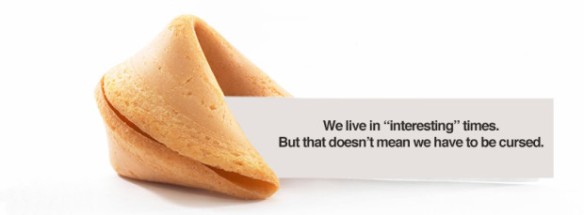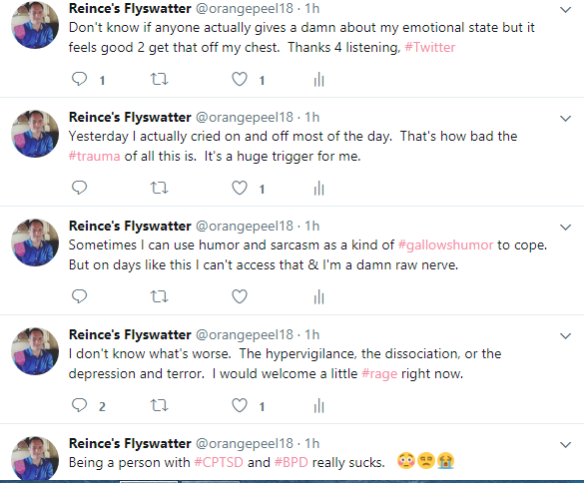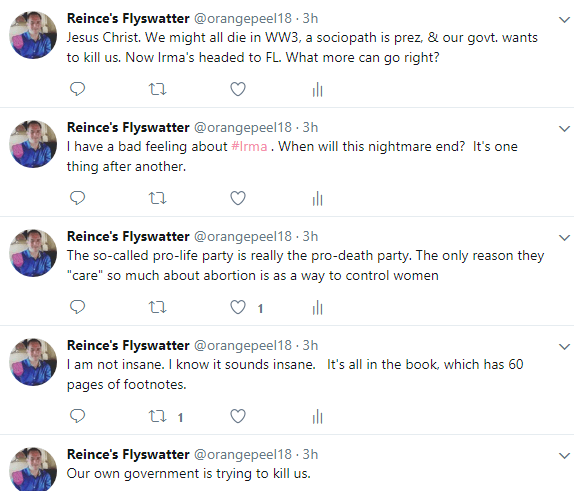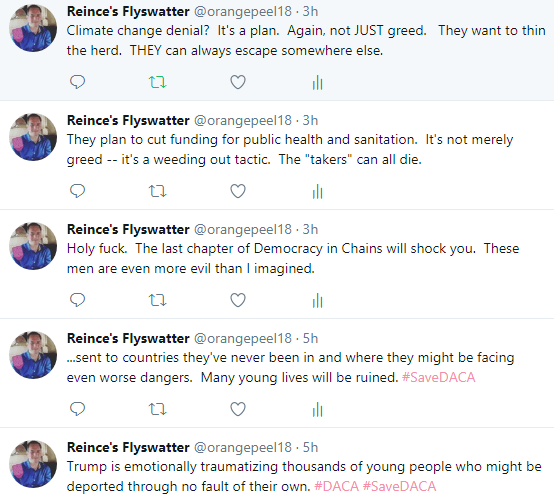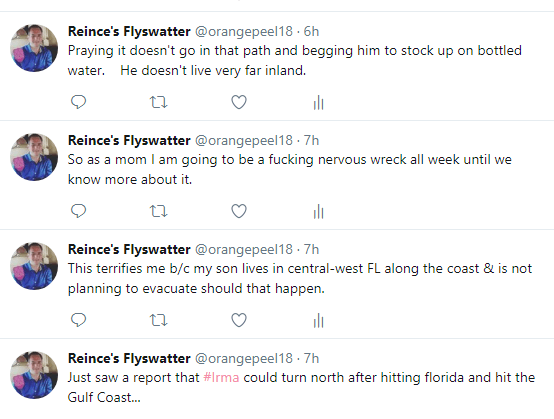
Twitter has made me a better writer.
I’ve always been a good writer (my teachers always told me so). To me it’s not work, it’s pleasure. I write largely for the fun of it. English composition was always my best subject in high school, and creative writing comes to me naturally. Always has. So it’s no surprise that I wound up with a career in medical editing and (technical) writing for several years until I started a family. It wasn’t exactly creative writing, but it was still writing, and therefore enjoyable to me.
Off and on throughout my life, I’ve dabbled in creative writing: fictional stories, fanciful memoirs, imaginative prose, all kinds of descriptive writing, poetry, and even a novel I refuse to show anyone and today sits in a rotting cardboard box in the back of a closet. And today, of course, I blog.
In college I really enjoyed my creative writing class and made high grades, but my professor had one big problem with my writing: my tendency to use “purple prose.”
Purple prose is overwrought writing. My sentences used to be overly long, way too descriptive, and filled with a lot of unnecessary adjectives and adverbs, and flowery, overwrought descriptions.
If I could have written the perfectly serviceable sentence, “A black cat jumped over the fence,” I’d write something like this instead:
A lithe feline creature as dark as a starless midnight, so dark its fur absorbed every color that might have surrounded it, virtually shape-shifted its grace-infused body into a spread eagle form and effortlessly soared over the wooden obstacle that no other creature could have breached without seriously injuring itself.
What the hell was that all about? A cat jumping over a fence or some supernatural shapeshifting thing? It’s hard to tell for sure.
I think my point is clear. Publishers and editors hate purple prose, but it is fun to write. It’s just that no one else wants to read it. Why use 100 words to make the same point that can be made in 10? Purple prose is also often emotionally overwrought and a bit nausea inducing. You can write the simple sentence, “her face crumpled and she began to weep silently” but a purple prose writer might write something more like:
Rivers of clear, salty tears poured from her Caribbean colored eyes (made even more deep turquoise when they were puddled with tears), and as they made their journey, they traced the fine lines of age just beginning to etch themselves into her cheeks, then divided into smaller rivers, and finally into streams, creeks, and small brooks before they finally dripped off the precipice of her chiseled, bony chin and splashed onto the bodice of her magenta velvet dress, and sat there, like clear glass beads, rather than being absorbed by the fabric.
Ugh. The simple sentence somehow has more emotional impact and doesn’t make you gag.
There’s nothing wrong with simple writing that doesn’t use a lot of big descriptive words and gets right to the point. Good writing has more to do with the way you string sentences, paragraphs, and ideas together, not how long and descriptive you can make a sentence.
If you enjoy writing long, flowery, descriptive passages, that’s great, but your writing probably won’t get read. That kind of writing went out of style about 100 years ago. That’s why novels written in the 18th and 19th centuries are so wordy and descriptive. Classic novels can go on for ten pages about the physical attributes of a single room or even a piece of furniture. Back then, people weren’t always rushed and they actually enjoyed reading extremely descriptive writing. Today it’s all about the action and the dialogue. Today (unfortunately or not), a novel that starts off describing a single object or a person’s face over several pages would go into the slush pile.

Twitter cured me of my tendency to write purple prose. Many people think of Twitter as shallow because how meaningful can you make a tweet that can only contain 280 characters? (It used to be worse: until a year or so ago, you were limited to 140!). And to some extent, that’s true. On Twitter, there’s a lot of cotton candy in prose form: shallow “ideas” or strings of words with no nutritive value for your soul or your mind. But there are also brilliant tweets that contain more meaning and depth than an entire book. Think of some of the most famous and profound quotes you have ever heard. They tend to be quite short, don’t they? Sometimes just a few words. But they are remembered, and used for decades or even centuries after they were first uttered. Twitter is a virtual quote factory, if you can bushwack your way through all the fibrous, sugary fluff that obscures the meaty, nutritious stuff.
And if you really, truly need to make your point in more than 280 characters, you can always thread a series of tweets together. It’s very easy to learn how to do this (though Twitter addict Donald Trump, not too surprisingly, appears to not have mastered this skill). Each tweet stands on its own, but is connected to the other tweets in your thread, making an entire article. Being limited to 280 characters for each tweet within a thread makes it virtually impossible to write run on paragraphs which can make your writing boring and hard to comprehend. Many tweet threaders number their tweets so there’s no question about what order you’re supposed to read them in.
Writing good tweets that have actual meaning (or are uproariously funny) is an art form and a discipline. If you write good tweets, they tend to get retweeted by others a lot. People recognize a good tweet when they read one. They are relatable, meaningful, and either very true, very funny, or very profound. They never use lots descriptive words because they can’t. Forced brevity tends to enhance the message you are trying to get across. It’s all about the meat and bones of an idea, with all the fat trimmed off.
So, because of Twitter, I have learned to write my ideas or observations without the fat and gristle that could obscure my message. This has improved my writing in general, and now whenever I read over a post I just wrote, any purple or overly descrptive prose sticks out like blobs of gristle hanging off a pork roast and immediately get sliced off. At first it was hard to do, but over time it gets a lot easier.
If you’re a writer, don’t knock Twitter. Expressing an idea using a very limited number of words works wonders for your writing, especially if you are like me and tend to be too wordy or descriptive.
*****
Further reading:
Is Your Prose Too Purple? (includes a test to find out if your prose needs to go on a diet)


